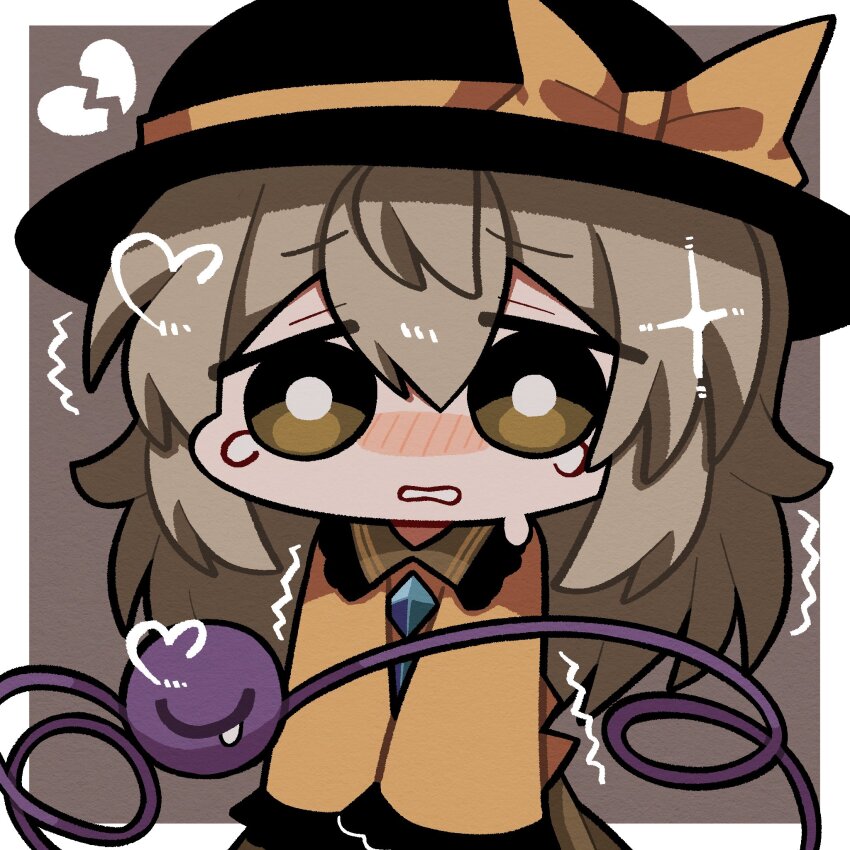hello! this is the first communist theory thing I actually managed to finish and fully understand, I’m gonna move on to other recommendations next, but I did get quite a lot of doubts that I noted in a little text file. none of them are gotchas just things I genuinely wonder about/don’t understand
i apologize in advance if these are common annoying questions, feel free to point me to other resources that answer these things if it’s too much  you also don’t have to answer everything
you also don’t have to answer everything
here’s the text in case it’s useful!! https://www.marxists.org/archive/marx/works/1847/11/prin-com.htm
Section 18
If competition is erradicated when every line of production is controlled by the state as Engels is proposing, will that mean an end of variety in consumer choice? I have indeed heard stories that people in socialist countries “only have one or two brands of X”, I’m not sure to what extent that is true but it seems like the natural conclusion from doing this…
Do you think this is better for an average person? main things that scare me are that, much like with companies in a market, how could we ensure the state produces things that benefit us and not benefit itself instead? this is what worries me about only having a single national bank too. Ideally if we only have one choice we have to make sure it’s the right one, no?
How would niche things, that benefit some part of the population but not everyone, be produced? Things like… fumo plushies, board games, or to put a less banal example, something that helps a condition that is uncommon and doesn’t spread but still exists, like special shoes to help some kinds of foot deformation for example…
thing is in a market system, niche things can make just as much or even sometimes more money than stuff that is produced “to be useful for everyone”, so they almost always appear in some way. but if all the production is controlled by the state, with very grand goals in mind, wouldn’t it not benefit them in any tangible way to invest in these kinds of things?
also, what would inspire innovation if it’s not competition? couldn’t the state just be satisfied with the results something is giving and not be interested in giving it resources to improve?
Section 19
I’m curious what communists think about this with a modern lens? AFAIK a revolution in a single country did happen right? And in Russia so none of the places Engels proposed. It didn’t really spread from there.
Section 20
do marxists think only economic class exists? wouldn’t there still be political classes? here it says that classes would end up disappearing because they only form due to division of labour. But isn’t there even in a fully realized socialist state a division of labour? even if everything is nationalized, isn’t there still a difference in power between, like, a furniture factory worker and the bureaucrat that oversees the state’s furniture building company? even if that bureaucrat is not monetarily richer than the worker per se.
also, it predicts here that education will give people the opportunity to understand the entire production system and thus jump from producing one thing to another, but since this book has written education has become a lot more universal, and that’s not what really happened right? people still chose one thing to specialize on and do it all their lives (or they study something that doesn’t have work opportunities and work something else). is there a difference in how marxists want education to work?
Section 24
I have one doubt about what Engels says about democratic socialists, mainly that small capitalists (“petty bourgeoisie”) in general tend to have the same interests as the proletariat.
i think one of the things that has put me off about revolutionary communism is precisely the attitude towards small capitalists, to be honest my parents are part of them, and I’ve always struggled to see them as a big evil the same way I view corporate giants, mainly because it’s just obvious their aims are not the same
I think the exploitation Engels is talking about where the workers always get the bare minimum that can be afforded happens mainly in big companies, especially the ones that have investors and seek infinite growth, but small companies like my parents’s basically just want to get by and survive, they only want to maintain themselves at an earning level that can support my family and the families of everyone who works there, if they can’t pay the wages with the weekly earnings they take out of their own savings to do it
in my parent’s case they are over 70 so they couldn’t really be part of the factory work either way, and I think what they do is still valuable (managing things, attending calls, organizing production and planning, supervising the design of new ideas, solving disputes, marketing, training new employees, etc…)
will these kinds of companies be treated any differently?
thanks a lot for reading, in advance!


There’s Cuba where the 2019 Cuban constitutional referendum was proceeded by community meetings. There were around 135,000 of those meetings where ordinary Cuban people hashed out what they wanted to add to the constitution, what they want to take out, and so on. Cuba has around 11 million people, so there’s a decent chance the majority of Cuban people has attended at least one meeting. This is why Cuba being slandered as some dictatorship by some reactionary gusano living in Miami completely falls flat.
There’s a Marxist concept called commodity fetishism, the idea that the social relations towards commodity production gets obscured and turns into inherent properties of the commodity itself. So, the fact that a certain car is more expensive than another car is taken as evidence that the car is somehow better rather than the social relations that goes towards producing that car. Maybe the more expensive car is just more expensive because they don’t exploit their workers as much or the car company didn’t get as much government subsidies and so on. The consequence of commodity fetishism is that the labor that goes towards producing that commodity is ignored, which means if that labor is exploitative, consumers won’t recognize or care about that exploitation because it’s not even factored in when they see the commodity. This is why gamers start malding when you talk about how game development is filled with exploitative practices like crunch time and rampant sexual harassment.
The reverse side is another Marxist concept called worker alienation, the fact that workers are alienated from the commodities they produce. A worker has no control in what they produce or how they produce it. They largely do what their supervisors tell them to do, which goes up to the chain of command up to the owner, who largely plans out what commodities gets produced based on what the market demands. So, the ultimate arbitrator of what and how a commodity gets produced isn’t even a human, but an inhuman entity called the market. The ultimate expression of worker alienation would be something like a grocery worker living on food stamps forced to destroy excess food by dumping it and pouring bleach on it so homeless people can’t dumpster dive.
If you combine the two, you have a situation where workers are alienated from the commodity they produce and consumers are alienated from production process of the commodity. To use chocolate as an example, you have cocoa farmers who never tasted chocolate before and chocolate consumers who have never seen what coca beans actually look like. This is a form of estrangement between worker and consumer. And since every worker is themselves a consumer and almost every consumer is themselves a worker, what commodity fetishism and worker alienation ultimately entails is workers being alienated from each other, everyone living as atomized individuals, which leads to the horrible capitalist hellworld we live in right now. This is why nobody gives a shit about wearing mask.
But in a socialist society where commodity fetishism and worker alienation aren’t a thing (or far less of a thing because there’s probably going to be some residual forms of commodity fetishism and worker alienation), consumers will recognize the labor that goes towards making the commodity and workers will have a say in what or how the commodity gets produced. To finally loop back to things like Funko Pops, what if the workers in the Funko Pops factory say, “Fuck you, we’re not producing this plastic crap anymore. We’re going to make plastic plates for disabled people who have a hard time washing dishes instead. If you want Funko Pop, you can go make it yourself.”
I should’ve used the example of workers refusing to make the niche product. This is how capitalist ideology like commodity fetishism constantly slips into your mind. But to rephrase the question: why should workers be forced against their will to produce what they and the vast majority of society consider to be useless junk for a small select minority? Is this not unfair for the workers who have to make that useless shit?
I think useless niche products will still exist, but they will most likely exist on an artisan level. Furry porn is a niche product, but you don’t need a factory to produce furry porn. Furry porn is something between the client and the artist. In fact, the production of furry porn isn’t as hard hit by commodity fetishism and worker alienation. The client has to research what artist they want and the artist has a clue of what particular sexual tastes the client has when the client asks for a commission. Unlike the production of most commodities, the production of furry porn preserves the social relationship between consumer and worker. This means that in a socialist society, the production of furry porn would largely be the same. If anything, it’s the production of other commodities that will start to closely resemble the production of furry porn.
just ordinary people? Like citizens from the streets that showed up? I was told the cuban democracy only allowed members of the communist party
as for the explanation, I think I mostly get it, it makes sense. I don’t have anything against workers just deciding to no longer produce stuff like Funko Pops, I was concerned with the state not allowing them any resources to if they did want to. I also really doubt absolutely no one in the world enjoys making figurines or plushies… I mean there’s a massive community of people who order the pieces of a figurine just to assemble it and paint it themselves for example. Plus without the alienation or the threat of starving if you don’t work on something more profitable, it might be a lot more attractive
I am going to just save this paragraph thank you so much for writing it